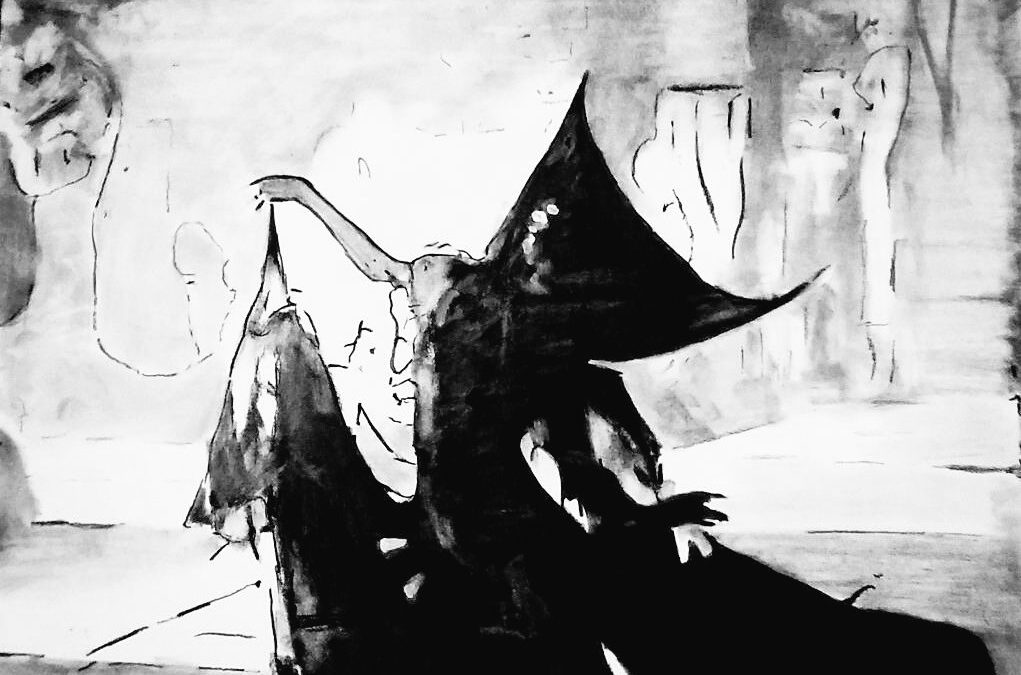Are you an emotional masochist?
Do you regularly flog yourself with negative self talk, worst case scenario thinking, defeatism and shame? Do you then berate yourself for these tendencies?
Truth is, looking on the bright side isn’t necessarily helpful or even possible. Adverse life experiences (aka trauma) results in complicated mental processes created to cope with struggle. For many people that means being “prepared” for or always expecting the worst. The younger you experienced trauma, the more deeply embedded and unconscious these processes are. Keeping on the sunny side is impossible until you examine what’s buried in the darkness.
Shadow work terrifies people. They don’t want to pull skeletons out of the closet for fear of losing control and getting lost in pain. But the pain finds you regardless, and the truth is that confronting it directly is incredibly liberating and empowering (albeit uncomfortable).
One of my favorite movies is Legend (1985), starring Tom Cruise, Mia Sara and Tim Curry. What seems a straightforward fantasy flick about good vs evil actually has quite a lot to say about trauma healing. One of my favorite scenes is the dance scene that takes place after Lily is abducted (watch it here). This is all about shadow work! The dark mysterious entity that enraptures her turns out to be a crucial aspect of herself. The Devil (trauma) cannot be defeated until Lily confronts her own inner darkness, not in an angry, aggressive way but in a sensuous and creative way.
Let this be a lesson to all of you emotional masochists. Rather than feel contempt for your dark tendencies, instead of shaming yourself for them, lean in further. Dance with the darkness. Feel it and explore it. This is the only way to integrate it and integration is the only way to heal it.
Here are some suggestions for working with your shadow side:
Own ALL aspects of you.
Society, culture, family, partners, friends, children, etc. all place certain expectations on us. We’re expected to behave in particular ways in order to gain approval and respect. But these prescripted expectations often fail to allow our full humanness—messy, ugly, depraved parts and all. Which leads to self rejection, which leads to shame and self loathing, which leads to depression and/or relationship challenges. Recognize and accept all of yourself, including the dark stuff that feels scary to admit.
Explore the dark side.
Write, create visual art, make music, dance, perform— use the expressive arts to dive into your shadow. Let your intuition guide the process. Therapy is another way to bravely confront your demons.
Trust divine guidance.
For some people this means praying for support. For others, it’s consulting Tarot or oracle cards. Maybe for you it’s calling in your ancestors or noticing signs in nature. Be open to communication with the divine and be prepared for whatever messages you receive. They may seem unpleasant sometimes but they’re always leading you down the path of healing. Trust.
Identify your shadow archetype(s).
Carl Jung identified personality archetypes, including a shadow archetype that is comprised of our rejected aspects of self. Others have further developed this idea to delineate specific types of shadow archetypes. A resource I appreciate is the 13 Shadow Archetypes created by Loner Wolf. Notice yourself in the descriptions. It may even help to go a step further and ask loved (and trusted) ones what they notice in you. Examine this information with openness and objectivity.
Call yourself out.
Once you’ve identified your shadowy bits, be mindful of when they show up in your life. Observe with curiosity rather than judgment. Notice your triggers and patterns. When you call yourself out, you’re able to shift and alter your behavior.
Be kind to yourself.
As you call yourself out and notice your own unpleasantness, be kind and compassionate. Remember, these parts formed from trauma and self rejection. Hold space for them with love and understanding.
Do inner child work.
Typically, our shadow is directly linked to adverse childhood experiences. Though you’re older now, that little kid still resides deep within you. Help her understand her experiences by offering explanations that weren’t available to her then. Grant permission to feel all of the confusing and complicated feelings. Provide unconditional love and comfort.
Visit and revisit the darkness.
This is not work you do once and then you’re done. Shadow work is a constant process. Just when you think you’ve conquered a demon, another pops up to remind you of your hidden shittiness. There are many layers to unwrap. Thankfully, the more you do this type of work the simpler it becomes.
Be willing to receive help.
Allow yourself to be honest and vulnerable. People who are capable of sincere, unconditional love will support you in the process. If someone doesn’t, it just means they have their own demons to battle. Don’t take it personally.
In Legend, love, friendship and courage triumph over cruelty. As you explore your shadow, be sure to develop and maintain connections with trustworthy people who can offer affection and companionship. Please do not do this work if you feel overwhelmingly alone or depressed. In that case, it is best to seek the support of a qualified therapist to help you get to a place where you can safely dive into the darkness.
With Love & Compassion,
Adina Arden Cooper
I'm a lover, a guide and a supportive companion. An artist, an ally and an advocate. I help individuals connect more deeply with themselves and with others through shadow work. I believe that shared humanity is a powerful strength and that our stories connect us in beautiful and sacred ways. As I stumble, skip, or soar my way through this life, I invite you to join me on the journey. Likewise, I'm honored to travel with you. In witnessing one another, we find meaning.


